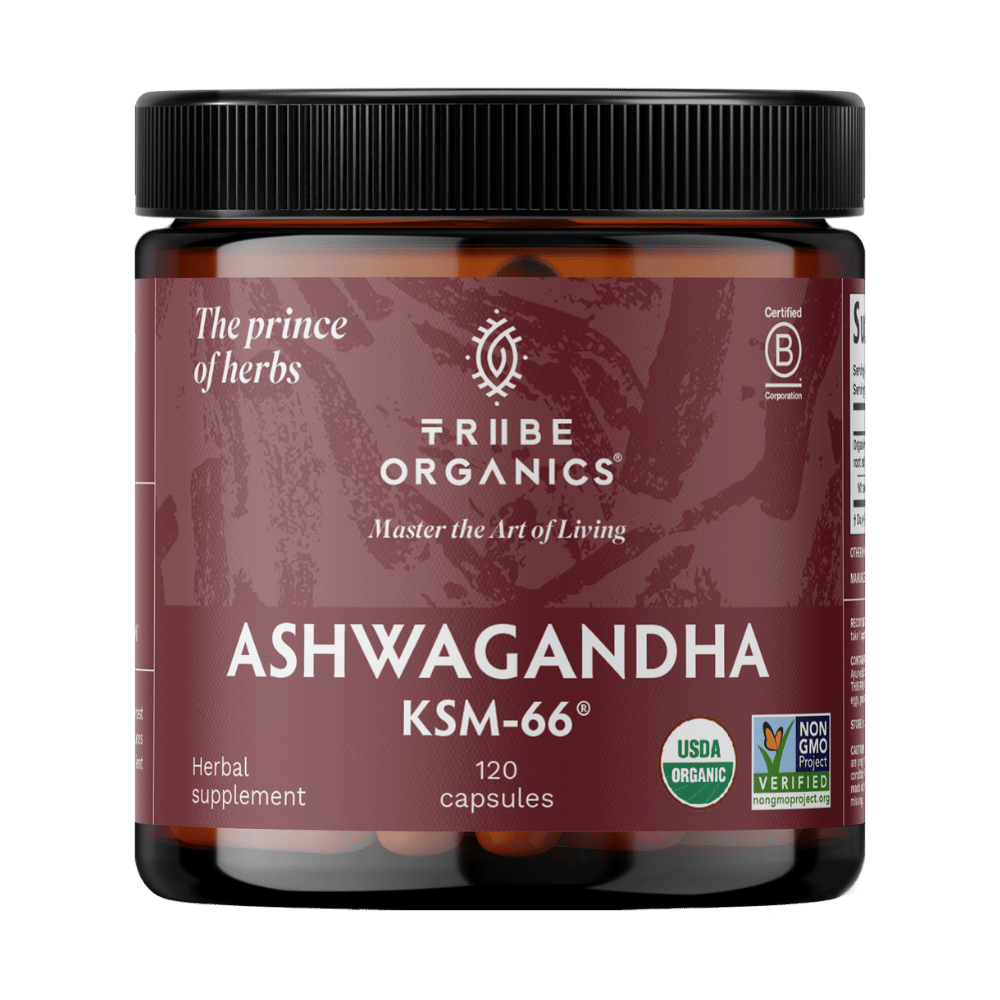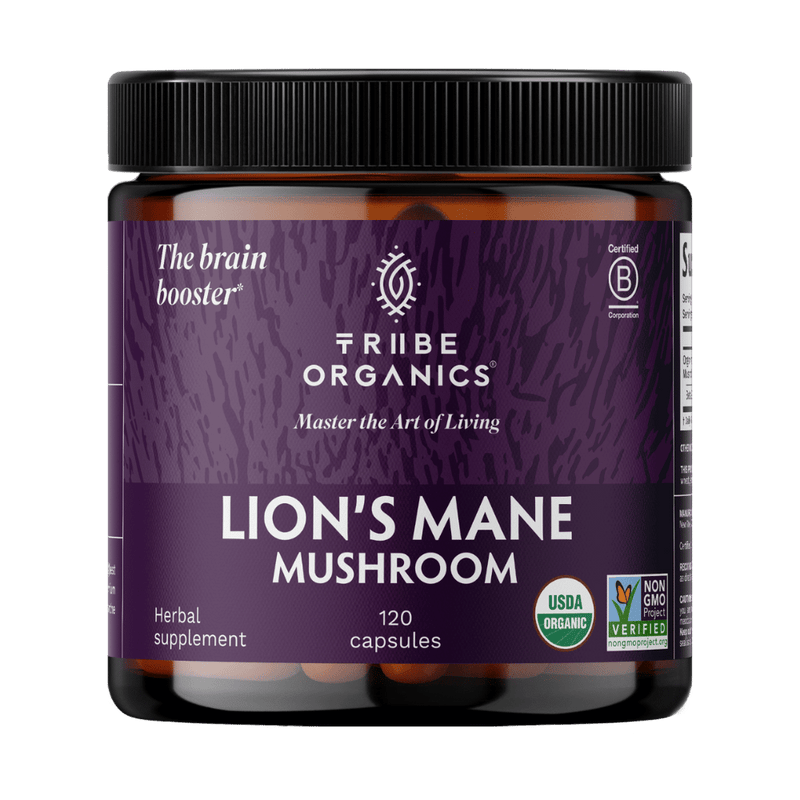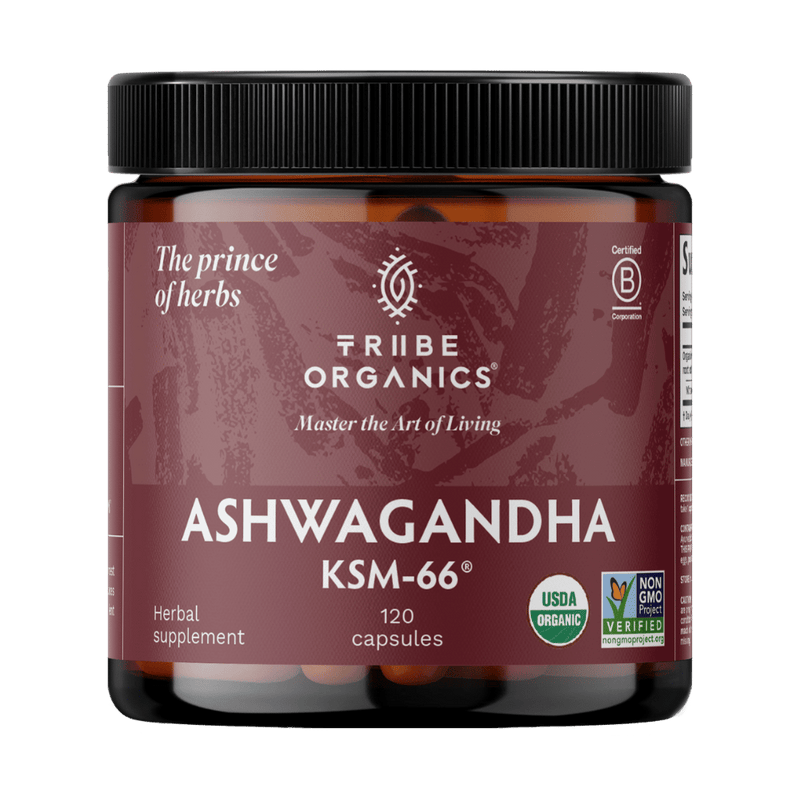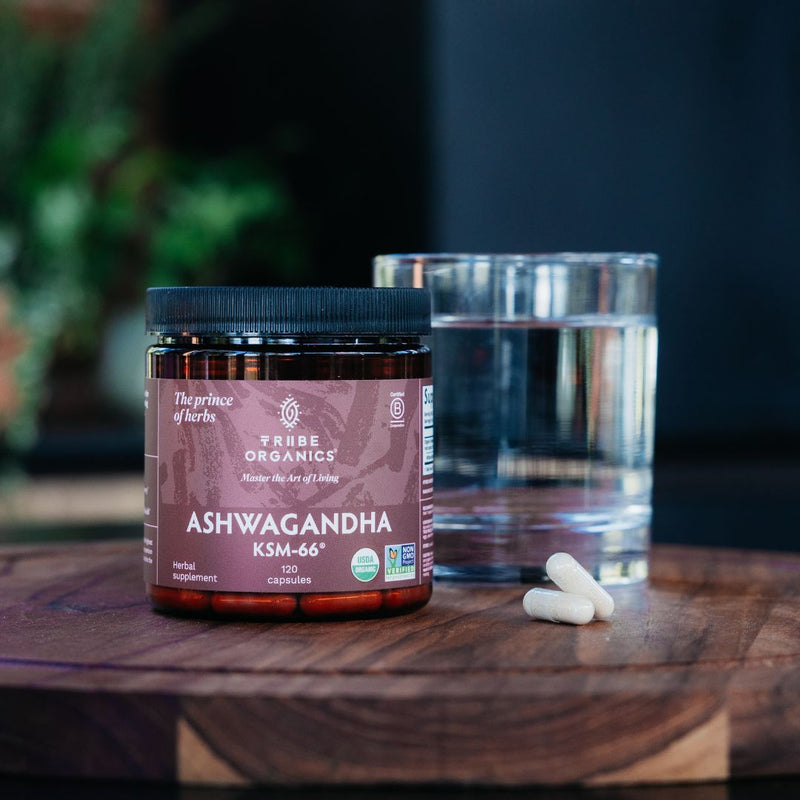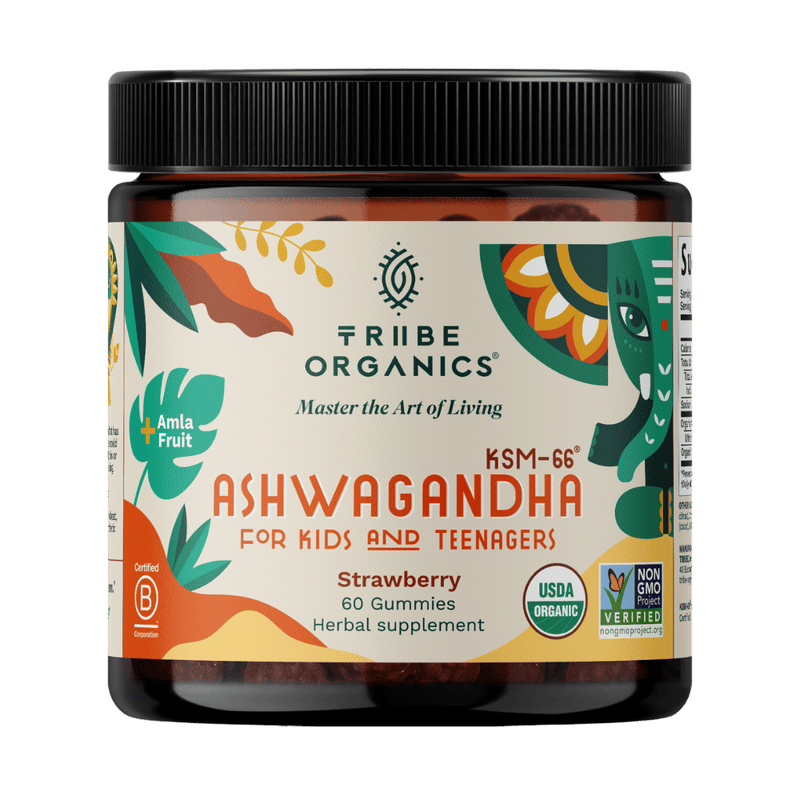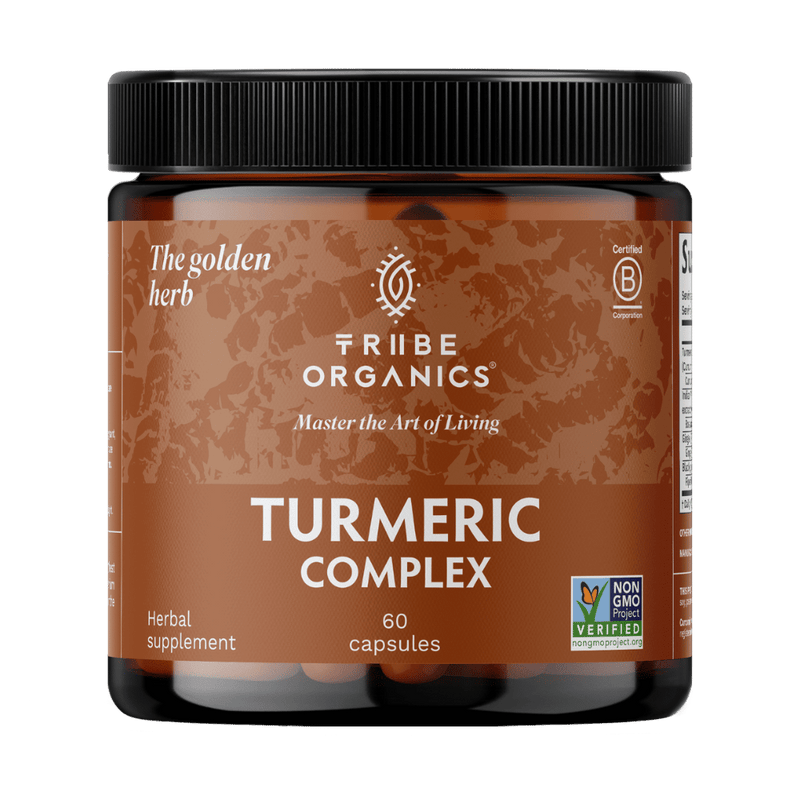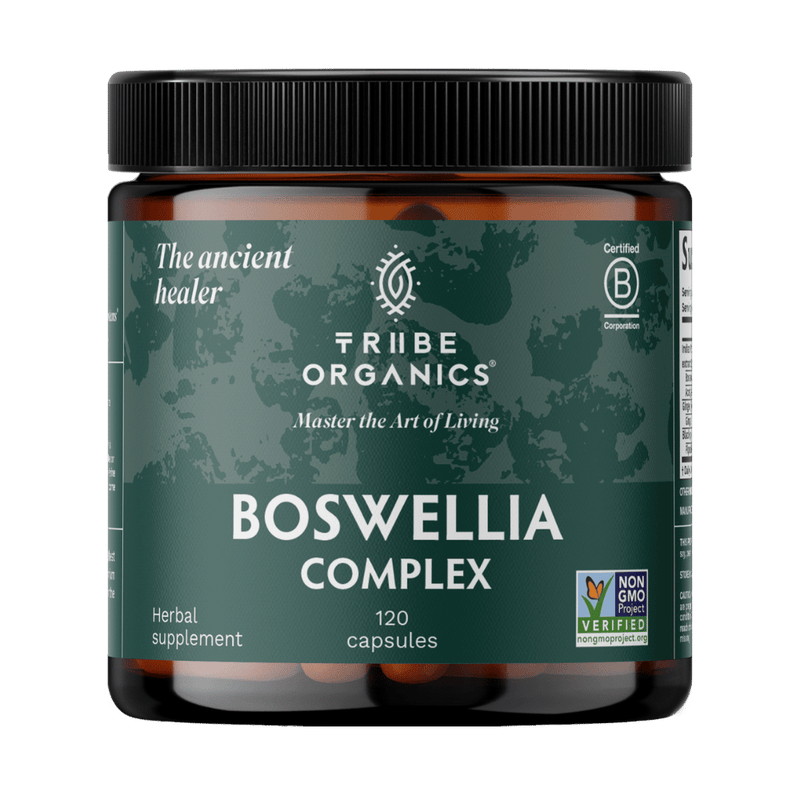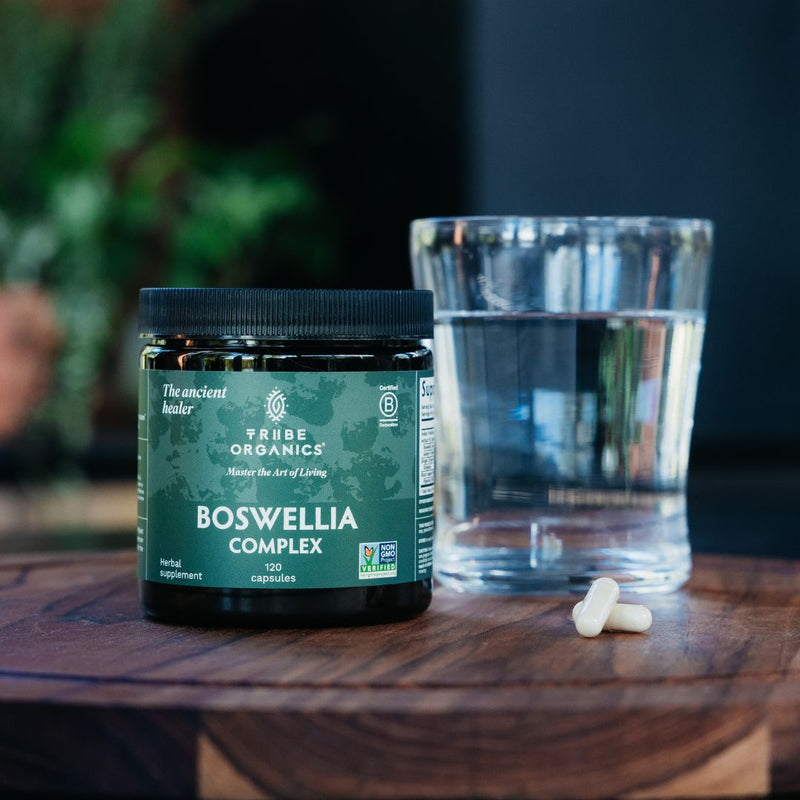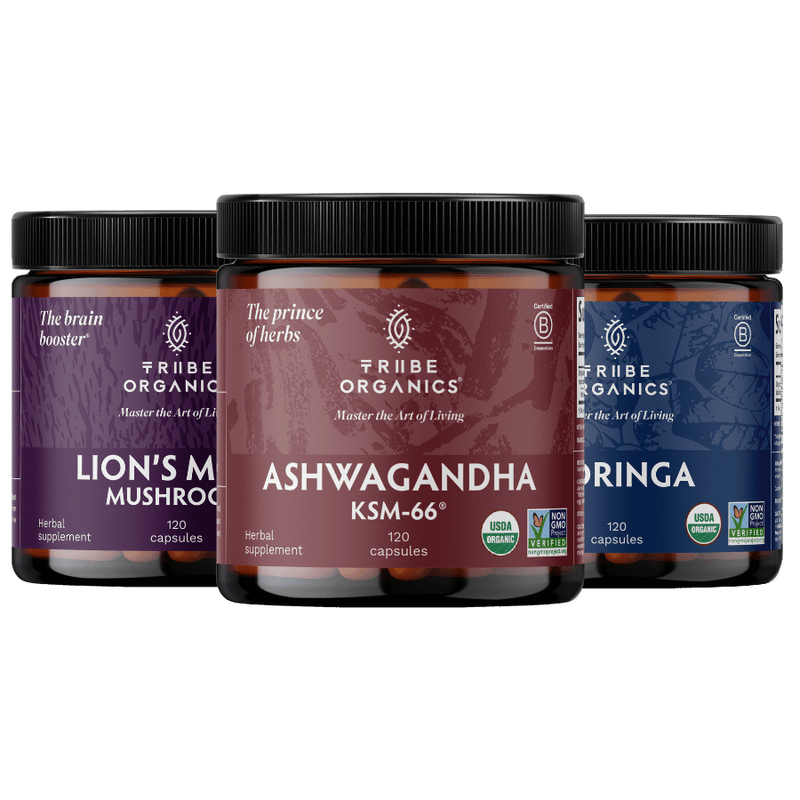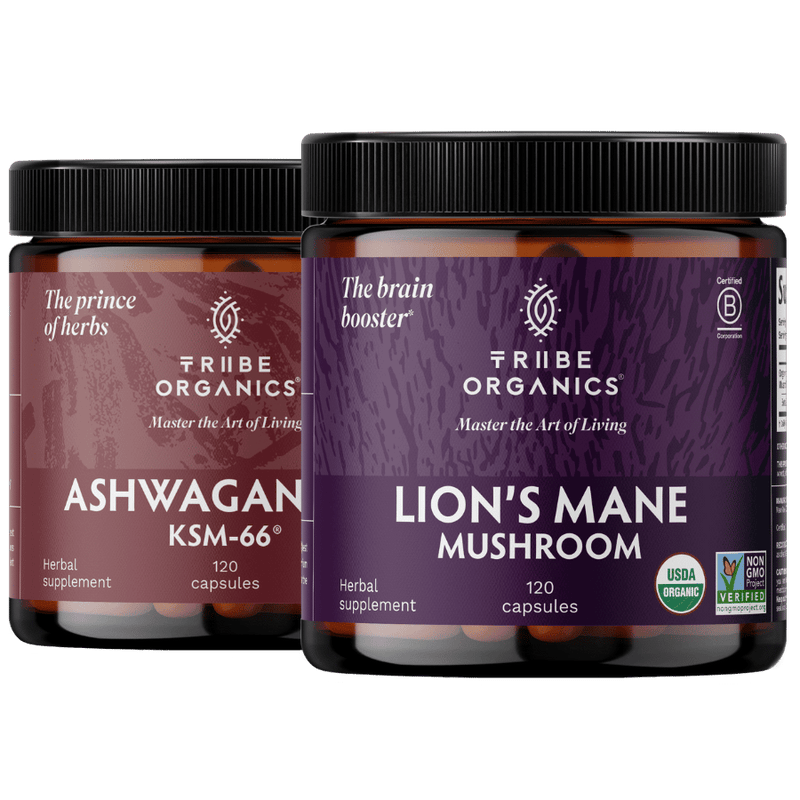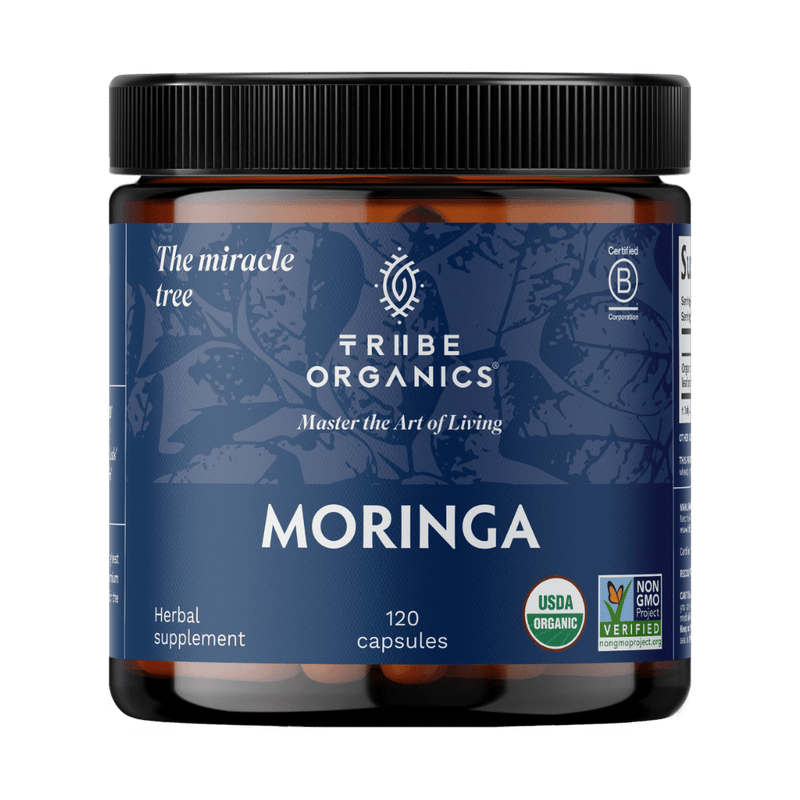Are you a new mother navigating the uncharted waters of breastfeeding? If so, you've likely heard of the powerful herb, Ashwagandha.
Ashwagandha has gained popularity in recent years for its potential health benefits, but when it comes to using it while breastfeeding, there are some important considerations to keep in mind.
In this comprehensive guide, we'll explore the topic of Ashwagandha while breastfeeding to help you make informed decisions for your and your baby's health.
What is Ashwagandha?

Ashwagandha, scientifically known as Withania somnifera, is a medicinal herb deeply rooted in traditional Ayurvedic medicine. The ashwagandha root is the part of the plant most commonly used in traditional Ayurvedic practices and modern dietary supplements, where it is incorporated into herbal preparations such as teas, powders, and capsules.
Often referred to as “Indian ginseng” or “winter cherry,” this herb has a long history of use in India and has gained worldwide recognition for its adaptogenic properties.
Ashwagandha is believed to help the body adapt to stress, boost energy, and support overall well-being.
Ashwagandha Benefits for Women
Stress Relief
Stress can become a constant companion for women juggling the demands of motherhood and daily life. Ashwagandha is celebrated for its ability to reduce stress, helping to calm the mind and promote a sense of relaxation. It helps regulate cortisol, the body's primary stress hormone, which plays a key role in managing the stress response.
Research shows that ashwagandha is effective in reducing stress by lowering cortisol levels. Ashwagandha may also help regulate the body's stress response, supporting relaxation and mental health. Breastfeeding mothers are advised to start with the lowest effective dose of ashwagandha and observe for side effects.
Improved Sleep
Sleepless nights are a common occurrence for new mothers. Ashwagandha may help improve sleep by enhancing sleep quality and ensuring that you get the rest you need to function at your best. Additionally, breastfeeding mothers often report persistent fatigue, which ashwagandha may help alleviate by supporting better rest and recovery.
Stamina and Energy
New moms often find themselves in need of an energy boost to keep up with their little ones. Ashwagandha is believed to enhance stamina and energy levels, providing the vitality needed for daily tasks. It has also been shown to support mitochondrial function, which plays a crucial role in improving energy levels.
Additionally, ashwagandha has been studied for its potential to enhance athletic performance, including improvements in strength and endurance.
Reduce Pain and Swelling
Childbirth can leave you with aches and pains. Ashwagandha’s anti-inflammatory properties may help reduce pain and swelling, providing relief from postpartum discomfort. Its antioxidant effects may also help reduce inflammation and support recovery.
Youth and Longevity
Ashwagandha is often associated with its potential to promote youthful vitality and longevity. Its antioxidant properties may help combat the effects of aging and support overall health.
Stabilize Blood Sugar
Maintaining stable blood sugar levels is crucial for overall health, especially for women managing gestational diabetes. Some studies suggest that Ashwagandha may help regulate blood sugar. However, there is limited evidence supporting these effects, and more research is needed to confirm them.
Ashwagandha for Breastfeeding: A Closer Look

Breastfeeding is a critical stage in a baby’s development, and mothers are understandably cautious about anything they consume during this time. Nursing mothers who are considering ashwagandha should be aware of its potential effects on lactation and postpartum vitality. Ashwagandha is no exception, and while it has many potential benefits, its safety during breastfeeding should also be considered to ensure the health of both you and your baby.
Is Ashwagandha Safe While Breastfeeding?
The safety of Ashwagandha while breastfeeding is a topic that lacks concrete scientific evidence. Medical professionals generally advise caution due to limited safety data for breastfeeding women and infants. No clinical trials of Ashwagandha on currently breastfeeding mothers have been published, though some studies have been referenced in the literature. A 2021 review acknowledged ashwagandha's potential for stress reduction but noted the absence of data in breastfeeding populations. However, it is worth noting that no harmful effects of ashwagandha during breastfeeding have been widely reported. For personalized advice and to ensure safety, consult your healthcare providers before starting or adjusting any herbal supplements.
Experienced Mothers' Perspective
Interestingly, many experienced mothers have chosen to incorporate Ashwagandha into their postpartum routines. They report various benefits, including reduced stress, improved sleep, and increased energy.
Their positive experiences raise intriguing questions about the herb's potential benefits for breastfeeding mothers.
Potential Risks and Considerations
For breastfeeding mothers considering ashwagandha supplements, it’s important to approach this ancient herb with thoughtful caution. While ashwagandha is widely recognized for its many health benefits—such as stress relief, improved cognitive function, and overall well-being—the scientific evidence supporting its safety during breastfeeding is still quite limited. Most adults may tolerate ashwagandha well, but when it comes to breastfeeding, the stakes are higher for both mother and baby. A collaborative approach with healthcare providers ensures that a supplement routine supports breastfeeding goals.
One of the main concerns is how ashwagandha might affect milk production and the quality of breast milk. Although some anecdotal evidence suggests that ashwagandha could help increase milk supply, there simply isn’t enough evidence from scientifically valid clinical trials to confirm this effect. In fact, the limited research available leaves open questions about whether ashwagandha could potentially impact milk production or even alter the composition of your milk.
Another important consideration is the possibility of interactions with other medications or supplements. Ashwagandha, like many herbal supplements, can interact with certain medications—such as sedatives or thyroid treatments—which may lead to unwanted side effects or complications. That’s why it’s essential for breastfeeding moms to share a complete list of all medications and supplements they are taking with their healthcare provider before incorporating ashwagandha into their breastfeeding routine.
In addition, some mothers may experience side effects from ashwagandha, including digestive upset, drowsiness, or changes in anxiety levels. While these side effects are generally mild for most adults, they can still affect your daily life and your ability to care for your baby. Monitoring your body’s response and staying in close contact with your healthcare professional is key if you decide to try this herbal supplement. Potential side effects may also include headaches, so it’s important to remain vigilant about any changes in your well-being.
Leading organizations, such as the National Institutes of Health, recommend consulting a healthcare provider before taking any dietary supplement while breastfeeding. Because there is not enough research on the safety and efficacy of ashwagandha for breastfeeding mothers, it’s best to err on the side of caution. More research and further studies are needed to fully understand the potential risks and benefits of adding ashwagandha to your breastfeeding routine.
In summary, while ashwagandha offers many potential health benefits, breastfeeding mothers should carefully weigh the possible risks and consult with a healthcare provider or lactation consultant before starting any new supplement. Prioritizing both your health and your baby’s well-being is always the best approach when considering herbal supplements like ashwagandha during this special time.
Is Ashwagandha While Breastfeeding Right for You?
It is worth mentioning that making an informed decision about using Ashwagandha while breastfeeding requires careful consideration of several important factors.
Deciding whether to use Ashwagandha while breastfeeding is a personal choice that depends on various factors, including your health, your baby’s needs, and your healthcare provider’s recommendations. Not all supplements are created equal—quality, safety, and effectiveness can vary widely, so it is important to choose reputable, third-party tested products.
While some mothers have reported positive experiences with Ashwagandha, the lack of comprehensive research makes it essential to proceed cautiously and consult a healthcare professional. Be sure to consider potential interactions with other supplements or medications you may be taking. Always follow recommended doses and avoid high doses, as excessive intake may increase the risk of side effects. Ashwagandha may also cause hormonal changes, which is especially relevant for postpartum women experiencing hormonal fluctuations.
For more information and scientific evidence, consult authoritative sources such as the National Center for Biotechnology Information and the National Library of Medicine.
As you navigate the journey of motherhood, remember that your well-being is intimately connected to your baby’s health. Prioritize open communication with your healthcare provider; together, you can make informed decisions that support you and your precious little one.
Additional Benefits of Ashwagandha
While the safety of Ashwagandha during breastfeeding remains a subject of concern, it’s worth noting that Ashwagandha has a wide range of potential health benefits for both individuals who are and are not breastfeeding. Ashwagandha has also been studied for its potential to influence testosterone levels. Some research suggests that it may help increase testosterone levels, particularly in men, which could support male fertility, muscle strength, and hormonal balance. Here are some of the other advantages associated with this remarkable herb:
Cognitive Function
Some studies suggest that Ashwagandha may have a positive impact on cognitive function, including memory and concentration. It may support brain health and mental clarity.
Hormonal Balance
Ashwagandha has been studied for its potential to balance hormones, particularly in women. It may help regulate the menstrual cycle and ease symptoms of menopause, similar to the ways other Ayurvedic herbs support hormonal balance and women's health.
Muscle Strength and Recovery
Ashwagandha's ability to support muscle strength and enhance recovery post-workout is a significant advantage for those engaged in physical activities or exercise. Ashwagandha root powder can be mixed into warm water or milk to create a soothing drink for mothers.
Anti-Aging Properties
The herb's antioxidant content can combat oxidative stress, potentially slowing down the aging process and contributing to youthful-looking skin.
Tribe Organics: Your Source for Health Supplements
Tribe Organics is committed to providing health supplements of the highest quality, and our Ashwagandha KSM-66 lineup is no exception. We also have Ashwagandha products available in vegan and gummy versions. Taking ashwagandha as a capsule, gummy, or powder can be an easy way to incorporate its benefits into your daily routine. Gummies are a tasty and convenient option for mothers who prefer not to swallow pills when taking ashwagandha.
We understand the importance of transparency, ethical sourcing, and product excellence in enhancing your well-being.
Our Values
We are more than just our supplements. We strive to be ambassadors in the use of herbs and mushrooms to find holistic (whole-istic) wellness. The transparency of our sourcing and traceability is required to maintain nothing but the highest standards of quality.
Ancient Traditions Meet Modern Research
Each herb and mushroom in our products is associated with ancient healing traditions like Chinese Medicine and Ayurveda. Our mission is to create our products with the convergence of scientific research in mind.
A Community of Support
Tribe Organics is more than a brand; it's a community. We are here to support you through the ups and downs of life, just like a trusted friend. Our commitment extends beyond personal wellness to the well-being of our planet and commitment to transparencycontact us with any questions!
Conclusion
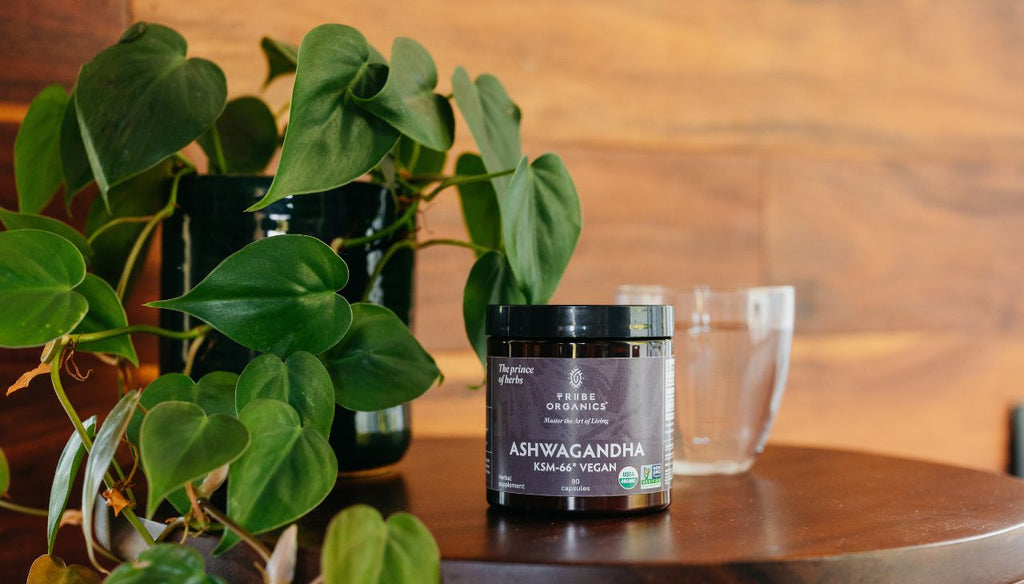
Ashwagandha while breastfeeding is a complex subject that requires careful consideration. While some experienced mothers have reported positive experiences with Ashwagandha, medical experts remain cautious due to the lack of comprehensive studies.
Whether you choose to explore the benefits of Ashwagandha or other herbal supplements, remember that your health journey is unique and deserves the utmost care and attention.
Explore the path to well-being with wisdom, and may it lead you to a place of balance, vitality, and joy.
Shop best sellers
Explore our collection of favorite items that have gained popularity for their quality and satisfaction.

